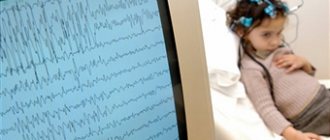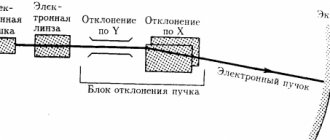Causes of disability
Factors that can cause disability in an epileptic:
- General disease.
- Injury sustained at work.
- Occupational disease - intoxication with manganese and carbon monoxide.
- Disability since childhood.
When a disability due to epilepsy is issued, the commission looks at how often seizures are recorded, whether there is mental pathology, and whether there are paresis and paralysis. Disability is assigned if a person is no longer able to work under the same conditions. The disability group for epilepsy is determined by a medical and social commission.
Indications for referral to MSE (Medical and Social Examination)
Medical and social examination is used for the purpose of:
- objectively assess the severity of the disease;
- correctly determine how limited the patient’s life activity is;
- make a clinical prognosis and assess ability to work;
- develop a rehabilitation course.
Indications for medical and social examination for epilepsy:
- impossible types and conditions of work;
- deterioration of the patient’s condition - more frequent seizures that are difficult to stop, mental disorders;
- it was not possible to achieve a positive effect after the operation;
- behavioral disorders in which a person loses control of himself.
Medical examination
The next step is to sign up for a medical and social examination at the main bureau of your city. A package of papers is also provided there. After submitting the documents, you are assigned a date for the examination. Usually it is carried out within a month from the date of submission of papers.
If a child cannot attend the examination in person due to health reasons, it is important to indicate this in the application and note that an on-site examination is necessary. At the specified time, you must arrive at the commission.
The examination is carried out by medical experts who have pediatric specialization. The commission must have at least 4 people, otherwise the commission’s decision may be considered unlawful.
At the invitation of the head of the ITU, the child’s attending physician, representatives of various kinds of state extra-budgetary funds, and representatives of the public may also be present with the right of an advisory vote.
When conducting an examination, a protocol is drawn up, and based on the results, a report is drawn up, which is signed by specialists and the head of the bureau in which the decision was made. All documents are certified by a seal.
Disability groups
The third group is observed in 35-40% of those suffering from epilepsy. The disease manifests itself moderately. This form is characterized by the following:
- attacks occur no more than 2-3 times a month;
- seizures with loss of consciousness - 2-3 times a month;
- epileptic seizures - more often than once every 1.5 months;
- personality changes are minor;
- headaches, migraines;
- due to the increasing weakness of the muscles, it becomes difficult to move and control your movements.
The ability to work remains with restrictions. The third disability group can be assigned to every patient suffering from epilepsy.
Second disability group
The second group is given to approximately 55-60% of patients. The limitations of life activity are pronounced, seizures are frequent and prolonged, personality changes are more profound, control over one’s own behavior is weakened. Labor activity in the second group of disabilities is limited. For patients to work, special conditions must be arranged.
Reasons for assigning group 2:
- prolonged partial seizures up to 4 times a month;
- seizures are recorded up to 3 times in 3 months;
- mental abilities decrease, which does not allow you to do your job well;
- increasing difficulties in self-care.
First disability group
The first group is given to only 2-4% of patients. There are pronounced limitations in life activity. The patient's personality changes radically. Characterized by frequent repeated seizures, dementia, and loss of behavioral control.
After 5 years of unsuccessful rehabilitation, the first group of disability is given indefinitely. Reasons:
- attacks with loss of consciousness become more frequent;
- mental deviations are increasing;
- self-care skills are lost;
- the person cannot work;
- the condition is aggravated by paralysis of the limbs, impaired vision and hearing.
Disability in children
Children's disabilities are not divided into groups. Disability due to epilepsy in children is designated as the category “disabled child”. In terms of social benefits, this is equivalent to group 1. The status remains until the child turns 18 or until the child’s health improves. After reaching adulthood, the issue of assigning groups 1, 2 or 3 is considered at the ITU.
A child with epilepsy may not be given disability status if the seizures are rare. Seizures must be correctly recorded and documented - you need a certificate from the hospital or an ambulance call note. They also refuse in cases of stable remission if the child does not take anticonvulsants.
Seizures in and of themselves do not qualify for disability. It is given when the child’s psyche and intellect are disrupted due to seizures.
To confirm, an examination by a psychiatrist, a speech therapist and a psychologist are necessary. It is advisable to register with a psychoneurological dispensary. If seizures do not interfere with the child’s development, then the denial of disability is legal.
How to apply for disability for epilepsy
Epilepsy is a chronic brain disease characterized by spontaneous, short-lived, infrequent seizures. This neurological disease is quite common. Epileptic seizures occur in every hundredth inhabitant of the Earth.
Attention
Falling disease leading to disability In most cases, epilepsy is a congenital disease and its first signs appear in childhood and adolescence. In patients, the threshold of brain excitability decreases, but there is no damage to the brain substance. Only changes in the electrical activity of nerve cells can be observed.
Info
This type of epilepsy is called primary (idiopathic). It is treatable, has a benign course, and with age the patient can completely stop taking pills. Secondary (sympotmatic) epilepsy develops if the brain's metabolism is disrupted or there is damage to its structure.
Types and conditions of work
Patients with epilepsy should not engage in the following types of work:
- activities in which there is a high risk of injury or death: near water bodies, with fire, high-altitude work, interaction with moving mechanisms;
- if a sudden cessation of work is dangerous for others: performing abdominal operations, driving vehicles;
- professions that ensure traffic safety: dispatcher, switchman, station attendant;
- with pesticides, radiation, toxic substances, with firearms, material assets, classified information.
Each patient has individual contraindications. When choosing a suitable job, it is necessary to take into account how the seizure occurs and what factors provoke the attack. It is important to prevent injury to the patient and others.
Permanent disability
Due to frequent seizures and deterioration of physical and mental health, a person with epilepsy can no longer work fully at their previous job. In such cases, the state pays subsidies - a disability pension. The disability group is determined by the ITU. The presence and severity of the disease is checked. People with epilepsy may be given a disability group for several years or for life.
If treatment has been unsuccessful for 5 years, and working capacity has not been restored, then such people are given disability indefinitely. This applies to people with epilepsy disabilities of groups 1 and 2.
Prevention rules
All patients are required to adhere to epilepsy prevention.
With this disease in groups II and I there is already little chance of complete rehabilitation of the patient. On the other hand, there is a clear opportunity to carry out rehabilitation measures, and if, as they are carried out over 5 years, no obvious signs of improvement are revealed (especially in children), then the patient with epilepsy is given permanent disability.
As for prevention, there are three stages:
- Primary – in which complex and timely treatment of the disease is carried out, even if primary symptoms occur in children, they can be saved.
It is quite reasonable to assume that during the course of epilepsy the patient loses 100% of his ability to work, therefore he is contraindicated in contact with operations of increased danger to life. This includes working with chemicals, explosives, working at heights, contact with gas, fire, water, and so on. Not to mention socially significant professions (doctor, policeman, fireman), working with weapons. All this must be spelled out in the labor code of the enterprise and stated in the Labor Code.
And yet, despite the listed restrictions, each of us has the right to choose our own path in life before receiving a terrible diagnosis of disability after epilepsy. There are many stories when, thanks to the support of loved ones, people managed to choose a different hobby, activity, raise and raise children.
- early diagnosis;
- Surgery may be required.
- hospitalization;
- various social assistance.
Here you can learn more about folk remedies for epilepsy.
Rehabilitation
Rehabilitation is measures to return a person suffering from epilepsy to an active life in society. It's a continuous process. There is medical, psychological and vocational rehabilitation.
Medical rehabilitation is designed to restore health and slow down the worsening of the disease. For epilepsy, this is mainly treatment with pharmacological drugs. The patient must take anticonvulsant medications continuously.
Therapy is aimed at suppressing the activity of the epileptic focus in the brain. For a rehabilitation course, it is better to choose a medical center where epilepsy is treated. A neurological hospital, a psychoneurological clinic and a neurosurgical department are also suitable. Psychological rehabilitation helps the patient overcome complexes associated with the disease and cope with deviant behavior.
During vocational rehabilitation, people suffering from epilepsy undergo retraining courses, and suitable forms of work are selected for them. They help in finding employment in an organization where the person will be provided with easier conditions and the working day will be reduced.
Do they give disability for epilepsy and how to get it?
These changes occur due to various pathologies:
- underdevelopment of brain structure;
- received traumatic brain injuries;
- past infectious diseases;
- due to strokes;
- in the presence of tumors;
- as a consequence of alcohol and drug addiction.
This form of epilepsy can appear at any age. It is difficult to treat, but if you cope with the cause of the disease, you can get rid of epileptic seizures forever. Types of epileptic seizures There are two basic types of seizures:
- Partial. They occur most often. They begin when a focus of increased electrical excitability forms in a certain area of the brain. The manifestations of an epileptic seizure depend on the part of the brain in which the focus occurs.
The procedure for obtaining disability
First you need to make an appointment with your local neurologist. He will give directions for examinations.
Analyzes and certificates that need to be provided to ITU:
- General analysis of urine and blood.
- X-ray of the skull in two projections.
- Certificate about the condition of the fundus from an ophthalmologist.
- Electroencephalography of the brain.
- Computed tomography or magnetic resonance imaging.
- Psychotherapist's conclusion.
After the patient has passed all the examinations and collected the necessary certificates, the neurologist issues a referral for a medical and social examination. Form - 088/a-06.
The chief physician signs the documents and puts a stamp. Then a day is set for the commission. The patient must come there in person.
If the commission recognizes the presence of a disability and establishes a group, then the person receives a certificate. A medical and social rehabilitation program is being developed. The program is implemented by the Department of Social Protection.
When all the documents are collected, pension payments and benefits are processed. To do this, you need to contact social services and the Pension Fund.
Benefits for people with disabilities in 2020
Disability pensions are indexed every year. The last indexation was in April 2020. Currently, the amount of social payments is 12,577.42 rubles. The volume of federal benefits has not changed. In some regions, beneficiaries receive additional payments from the local budget.
List of benefits:
- 50% discount on housing and communal services;
- vouchers to sanatoriums with compensation for the cost of travel to and from the place;
- discounts on public transport;
- in houses where wheelchair users live, a ramp is installed;
- You can get a municipal apartment faster;
- tax benefits;
- reduction of working hours while maintaining wages;
- land for construction of a residential building;
- preferential admission to universities.

On January 1, 2020, the list of diseases that give people with disabilities the right to additional living space changed.
Where is epilepsy treated in Moscow?
Diagnosis and treatment of epilepsy and other neurological diseases are carried out at the Yusupov Hospital. The patient can undergo blood tests, MRI, CT, radiography and other tests in the laboratory and diagnostic center of the hospital. After completion of treatment, the doctor will provide the patient with an extract from the medical history, which will indicate all the results of the patient’s examination, a detailed description of the course of the disease, the drugs used for treatment, treatment methods, and rehabilitation methods.
Head of the Research Center for Parkinson's Disease, neurologist, Doctor of Medical Sciences, Professor
Rights of people with disabilities
People with disabilities must know Russian legislation in order to be able to defend their rights. It is useful to study the following laws:
- “On state social assistance.”
- “On social protection of disabled people.”
- “On social services for elderly and disabled citizens.”
- Labor and Housing Codes of the Russian Federation.
- "About veterans."
These regulations also stipulate the rights of disabled children and their parents. To apply for disability benefits, you need to contact the Pension Fund directly or through the Multifunctional Center.
Benefits for a disabled child
If a child with epilepsy is given a disability, his working parents have benefits.
An employee has the right to go on paid leave at a convenient time. You cannot be forced to work overtime and on weekends. If a disabled child is raised by one parent, then such an employee cannot be fired. You can take up to 4 paid days off per month and 14 days of vacation at your own expense. You can retire early.
Families raising a child with disabilities receive subsidies to pay for housing and communal services.
Poor
People whose income is less than the subsistence level are considered poor. These citizens are provided with the following benefits:
- minors and students are entitled to compensation and cash payments;
- if a pensioner has an income below the subsistence level in the region, he is assigned an increase to his pension;
- assistance with food, fuel, clothing, medicine;
- tax deductions;
- discount on housing and communal services;
- advantages when applying for a job;
- labor pension can be issued earlier according to age;
- garden and land plots;
- social mortgage.
To find out about benefits for people with disabilities in your region, you need to visit your local social welfare office.
Epilepsy in children
Next, the documents are certified by the signature and seal of the hospital’s chief physician.
At the next stage, you need to appear at the ITU office, where a date and time for the examination will be set. Amount of pension and monthly allowance for disability Monthly pension for disabled people in 2014: For disability group I - 8,647.51 rubles. ; For disability group II – 4,323.74 rubles.
(After all, I can’t go to work because of this. My child cannot be taken to kindergarten due to medical indications from a neurologist. And we have to buy medications that we should receive for free because they are not in stock.) Text is hidden expand
2) Almost honest - you have big judgments.
adj. 1-2 times a month or freezing 1-5 times a day and you have statements from the ambulance about the time and date of the call, as well as you constantly prescribe medications and constantly complain about your health to a Neurologist or Epileptologist.
To assign a disability group, the patient should contact a neurologist and receive a referral for tests and examination to the required doctors. For this purpose, you will need:
- submit blood and urine for examination;
- undergo an x-ray of the skull;
- undergo a fundus examination by an ophthalmologist;
- undergo ECHO-EG and electroencephalography;
- undergo tomography and MRI;
- be examined by a psychotherapist.

Based on the examination results, the neurologist should:
- fill out the referral (form 088/a-06) for social examination by ITU;
- refer the patient to a special commission where the person’s health will be assessed.
After the neurologist, all collected papers are checked by the head physician, who certifies them with a signature and seal. Next, the epileptic will need to submit all documents to the ITU office to set the date of the examination.
When considering disability due to epilepsy in children, it should be noted that in medical practice, group 3 is most often encountered and group 2 is somewhat less common. It should also be emphasized that the manifestation of epilepsy in children has significant differences from the same manifestations in an adult.
Thus, the disease in children is practically not diagnosed. Infants do not have convulsive attacks, but there is a diagnosis of headache, the presence of nausea with vomiting, and speech disorders may be observed.
Most parents, faced with the problem of a child having a serious illness, are in no hurry to register for disability. This is due to the fact that parents are afraid that becoming disabled can put an end to the child’s future life and interfere with his socialization and education.
In fact, it is advisable to apply for disability as early as possible. Having a medical certificate provides a number of advantages, the main one of which is the opportunity to receive a special rehabilitation program for the child, funds and medications for its completion.
We list the main types of benefits that a disabled child can count on. Please note that some of them may be provided only in certain regions or by individual sellers (this applies to benefits for the purchase of certain products, discounts on goods and services):
- housing benefits;
- free travel on public transport;
- receiving free medicines for treatment;
- free access to the Internet;
- cable television connection on a preferential basis;
- benefits for telephone services;
- discounts on the purchase of funds and essential items;
- labor and pension benefits;
- benefits when entering a university;
- sanitary and resort improvement.
Benefits are also provided for parents:
- social pension;
- allowance for caring for a disabled child in the amount of 60% of the minimum wage;
- inclusion of time spent with a disabled child in the work experience;
- the possibility of retirement after 50 with at least 15 years of experience.
The conditions for providing benefits should be clarified at the social security department at your place of residence.











